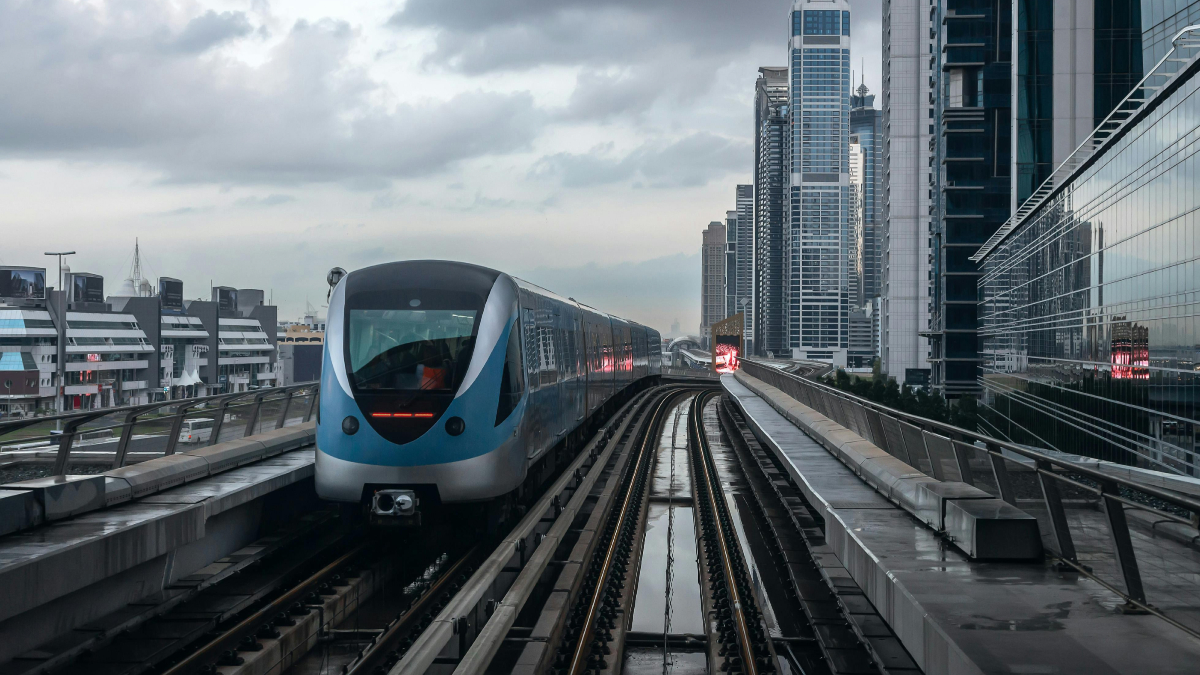Dubai’s Metro network is set for a major expansion, adding more stations over the next several years. The emirate’s Executive Council approved a development plan that aims to increase the current 64 stations across 84 square kilometers to 96 stations over 140 square kilometers by 2030, and ultimately to 140 stations covering 228 square kilometers by 2040.
According to a Khaleej Times report, this expansion is part of the vision set by Sheikh Mohammed bin Rashid Al Maktoum and Sheikh Hamdan bin Mohammed Al Maktoum. The project aims to enhance public transportation usage to 45%, cut carbon emissions to 16 tonnes per capita, improve public spaces to encourage walking, and increase shaded areas. By developing areas around Metro stations, the plan seeks to boost economic opportunities, integrate different modes of public transport, and improve the efficiency and convenience of sustainable transportation. Additionally, it will provide incentives for developers and support the ’20-minute city’ concept to increase the number of commuters.
In addition to the Metro expansion, the council has approved the Foreign Direct Investment (FDI) Development Programme. This initiative aims to attract Dh650 billion in investments to Dubai by 2033, focusing on international companies and supporting the growth of existing businesses in the city. The programme plans to allocate Dh25 billion over the next decade to help Dubai become one of the top three global economies. Key features of this initiative include highlighting Dubai’s competitive advantages such as its logistics infrastructure, strategic location, talent pool, and status as a global commercial hub.
Moreover, the council has introduced the Dubai Economic Model, a comprehensive database of over 3,000 indicators designed to measure the city’s progress against its economic targets. This model aims to enhance consumer and investor confidence. Sheikh Maktoum emphasized that empowering individuals is fundamental to any successful economic model. He highlighted Dubai’s diversity, vitality, and commitment to core values and national identity, in line with the goals of Dubai’s Social Agenda 33, which focuses on fostering happy, strong, and tolerant families.
To support Emiratis, the council approved the ‘Manbar’ programme, which aims to double the number of Emiratis working in mosques by providing them with the necessary skills and training. This includes delivering prayers, call to prayer, and performing Friday prayers. Participants will receive comprehensive training and evaluation.
Additionally, the ‘Ghras Al Khair’ programme was launched to empower Emirati content creators and promote values of tolerance, harmony, and national identity. Schools and universities will offer programmes and awareness campaigns to support these goals.






